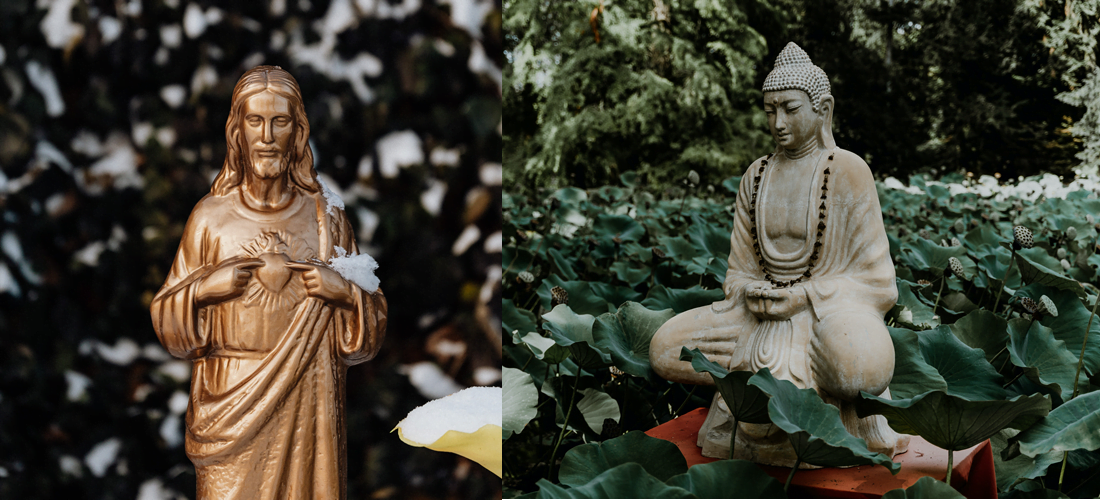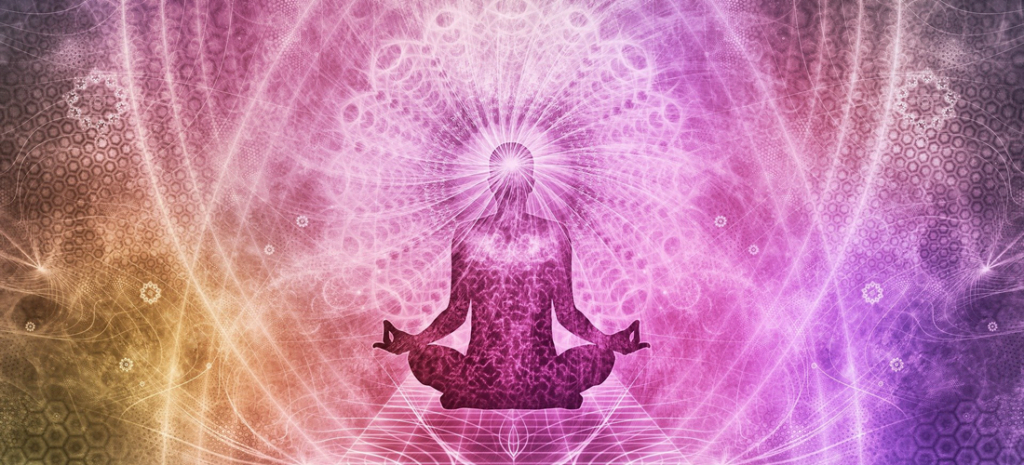The topic of spirituality vs. religion is a complex and often debated subject. It centers around the exploration of two distinct but interrelated concepts. Religion, typically institutionalized, consists of a specific set of beliefs, practices, and customs identified with a larger group.
On the other hand, spirituality is a more individualized and personalized journey. Often connected with a quest for purpose, understanding, and connection to the universe. These two concepts, while distinct, often intertwine and overlap in unique and intricate ways.
In the contemporary era, there’s a noticeable shift in people’s spiritual inclinations. With an increasing interest in personal spirituality and a simultaneous decline in traditional religious affiliations. Many individuals now identify as “spiritual but not religious”. Emphasizing personal growth, self-realization, and a sense of inner peace as their spiritual journey.
Traditional institutions of religion are experiencing a decrease in their following. A trend that could be attributed to the rigidity of religious dogmas. Or the growing necessity for an individualistic and personal approach to spirituality. It’s an intriguing dynamic that underscores the evolving landscape of belief systems in our society.
Defining Spirituality and Religion
Spirituality is a broad and personal concept that can be understood in many ways. Essentially, it refers to a connection to something bigger than ourselves, often involving a search for meaning in life. It is a universal human experience—something that touches us all.
Unlike religion, which is typically defined by a structured set of beliefs, rituals, and practices often linked to an institution or organization, spirituality tends to be more personal and subjective. It allows individuals to shape their understanding and approach according to their unique experiences, feelings, and insights.
Religion can be defined as a structured system of beliefs, practices, rituals, and symbols. A practice designed to facilitate closeness to the sacred or the transcendental. It typically has a structured hierarchy. Often characterized by the presence of ordained clergy, a set of prescribed rituals, and established places of worship.
The communal aspect of religion is significant as it brings together individuals with similar beliefs, fostering a sense of belonging and solidarity. It acts as a social glue binding people together. Providing them with moral guidelines, and offering answers to profound existential questions.
Historical and Cultural Contexts
Historically and culturally, the concepts of spirituality and religion have carried different connotations. Religion, often institutionalized, is deeply rooted in tradition and doctrine. It is typically tied to the worship of a higher deity or deities.
It plays a significant role in societal structure, shaping laws, ethics, and community practices. Culturally, religions often define group identity and serve as a cornerstone for societies, providing a framework for understanding the world and the human experience.
On the other hand, spirituality is a more individual and personal quest for understanding one’s place in the world and the meaning or purpose of life. Historically, spirituality has been less formalized, focusing more on personal growth, self-realization, and a connection with all elements of life. It transcends the tangible and explores the metaphysical.
Culturally, spirituality can be expressed through a myriad of practices, such as meditation, art, or connecting with nature. It is not bound by the structures and dogmas often found in organized religion.
Key Differences
Spirituality and religion share some common elements, but they also have key differences that set them apart. Here are some of the key differences between spirituality and religion:
Belief Systems
- Spirituality: Belief systems often focus on personal growth and the search for transcendent meaning. They prioritize individual experiences and subjective interpretations, allowing for fluidity and flexibility in beliefs. Unlike rigid religious doctrines, spiritual belief systems tend to emphasize personal enlightenment, inner peace, and a profound connection with the universe. These beliefs may borrow from various religious traditions, but they are ultimately shaped by individual experiences and introspections.
- Religion: Belief systems are typically codified, providing a set of doctrines or dogmas that followers adhere to. These doctrines often encompass views about the nature of divinity, the afterlife, moral behavior, and the purpose of human existence. They are often transmitted through religious texts, rituals, and institutions. The collective adherence to these belief systems can result in a sense of unity and shared identity among followers of a specific religion.
Rituals and Practices
- Spirituality: Rituals are more personal and individualistic. Often serving as a means for the individual to connect with their inner self or the universe at large. These practices could include meditation, yoga, or even simple tasks performed mindfully. Unlike in religion, where rituals are typically dictated by doctrine and performed communally, spirituality allows for a more flexible, self-directed approach to ritualistic practice.
- Religion: Rituals and practices are integral parts of religion, serving as tangible expressions of its underlying beliefs and doctrines. These traditions, whether they involve prayer, meditation, fasting, or pilgrimage, help foster a sense of community among followers and provide a structure that guides their daily lives. These practices often serve as a means of communicating with a higher power, seeking spiritual guidance, or expressing devotion.
However, they are not merely symbolic; they are also believed to have real, tangible effects on the spiritual realm. These rituals and practices, while they vary widely among different religions, form a significant part of the religious experience. They bring followers closer to their faith and instill a sense of purpose and meaning in their lives.
Community and Institutions
- Spirituality: Community and institutions play a pivotal role in spirituality, albeit a different one from their role in traditional religion. While religious institutions often provide a structured path towards spirituality, the spiritual journey itself is inherently personal and individual.
Communities come into play by offering support, inspiration, and a sense of belonging to individuals on their spiritual journeys. These communities can be informal groups of like-minded people, online platforms, or even organized spiritual retreats. They provide a space for people to share experiences, learn from each other, and grow spiritually.
However, unlike religious institutions, these communities rarely impose a fixed path or doctrine. Instead, they foster an open environment encouraging exploration and personal interpretation of spirituality.
- Religion: Communities and institutions play instrumental roles in the realm of religion. They serve as the framework that guides religious practices, rituals, and beliefs. Institutions, such as churches, mosques, or temples, provide a physical space for congregations to come together. Thus, fostering a sense of community, shared identity, and belonging.
These religious institutions also often facilitate organized religious teachings, imparting doctrines, and facilitating spiritual development of their members. Meanwhile, the community aspect of religion is crucial, as it fosters unity, offers support, and strengthens faith among individuals.
Through communal worship, shared rituals, and collective acts of charity, religious communities cultivate a sense of togetherness. This allows individuals to feel connected and part of a greater whole.
Dogma and Flexibility
- Spirituality: Spirituality, often viewed as more flexible, allows individuals to seek their own path towards understanding the universe and their relationship with it. This journey is typically marked by personal growth, self-discovery, and an exploration of one’s inner self.
Spirituality appreciates the fluidity of individual beliefs and understands that they can evolve over time based on experiences and personal revelations. It encourages open-mindedness, understanding, and the freedom to question and redefine one’s beliefs.
- Religion: Dogma refers to a set of principles laid down by an authority as incontrovertibly true, serving as a foundation of a religion. These doctrines, often inflexible, provide followers with a clear, unambiguous framework to guide their beliefs and actions.
On the other hand, flexibility within religion allows for personal interpretation and adaptation of these principles. Thus, fostering a more individualistic approach to spirituality. This dichotomy between dogma and flexibility can lead to diverse expressions of faith within the same religion. It demonstrate the complex interplay between tradition and personal spiritual exploration.
Hierarchy and Authority
- Spirituality: Unlike religion, which often operates under a hierarchical structure with authority figures, spirituality encourages personal growth and self-discovery. There is no defined authority in spiritual practices, as each individual embarks on their unique journey towards spiritual awakening. Rather than adhering to a specific doctrine or religious institution, spirituality encourages individuals to seek their divine connection, emphasizing personal experiences over authoritative teachings.
- Religion: Hierarchy and authority are critical aspects in many religions, offering structure and guidance for adherents. These religious hierarchies often consist of ordained or appointed leaders, such as priests, ministers, rabbis, or imams, who perform sacred rituals and interpret religious texts.
Their positions of authority are recognized and respected by followers, contributing to the stability and coherence of the religious community. Moreover, these structured hierarchies can differentiate religion from spirituality, where the latter often emphasizes personal growth and self-discovery outside of formal institutional frameworks.
Membership and Identity
- Spirituality: Membership and identity within the context of spirituality often transcend traditional religious affiliations. Unlike established religions with formal memberships, spirituality is a subjective experience, often perceived as a personal journey. It engenders a sense of interconnectedness with the world and can be seen as an individual’s unique expression of self-understanding, moral values, and purpose.
This personal form of identity and membership, rooted in spirituality, allows for a self-determined and potentially evolving understanding of the divine, independent of institutionalized religious mandates.
- Religion: In the realm of religion, “Membership and Identity” often intertwine. Typically, being part of a religious group extends beyond shared beliefs and practices, playing a significant role in shaping an individual’s identity. The connection between religion and identity can be profound, as religious faith often touches on deep, existential questions about purpose, morality, and the nature of the universe.
This affiliation also typically provides a sense of community, with congregations acting as a supportive network offering social interaction, emotional connection, and shared values. These factors combined can help shape an individual’s self-perception and their interactions with the world around them.
Understanding these key differences can help individuals make informed choices about their own spiritual or religious paths and appreciate the diversity of approaches to matters of faith and meaning in the world.
Common Ground
While spirituality and religion are distinct in many ways, they are not mutually exclusive and often intertwine. Religion often provides a structured approach to understanding the divine, usually through established doctrines and communal practices. On the other hand, spirituality is more personal, focusing on individual experiences and connections with a higher power or the universe.
However, many religious people also identify as spiritual, finding personal spiritual experiences within the framework of their religious practices. Therefore, spirituality and religion can coexist, complementing and enriching each other to provide a holistic understanding of one’s place in the universe.
Spirituality and religion, despite their apparent differences, often intersect and mingle in complex ways. Religious mysticism, for instance, is a prime example of this interplay. Mystics from various religious traditions, whether Christian, Sufi, or Buddhist, frequently describe experiences that transcend dogma and doctrine, delving into a realm of the transcendent and ineffable that is more commonly associated with spirituality.
Similarly, many religious traditions incorporate spiritual elements that emphasize personal and experiential connections with the divine, transcending the confines of institutionalized belief systems. This can be seen in practices like meditation in Buddhism, prayer in Christianity, or Dhikr (remembrance) in Islam. These examples underline the fact that spirituality and religion, far from being diametrically opposed, can often complement and enrich each other in meaningful ways.
Personal Choice and Freedom
The idea of spirituality versus religion has been a topic of debate for ages. Essentially, this freedom to choose one’s path—whether spiritual, religious, or a blend of both—is an essential human right. It allows individuals to shape their beliefs and values according to their personal experiences and insights.
Spirituality often encapsulates a sense of connection to something bigger, an ultimate quest for meaning, often directed inward. Religion, on the other hand, is usually associated with set doctrines and rituals, providing a communal sense of belonging. The choice between spirituality and religion is not mutually exclusive; many find their spiritual home within the principles of an established religion.
This freedom to explore and decide our path fosters individuality and personal growth. It is crucial to honor this diversity of beliefs as it contributes to a richer, more comprehensive understanding of the human experience.
Spirituality and religion, although sometimes used interchangeably, have distinct connotations. Religion often implies adherence to organized beliefs and practices, while spirituality tends to be associated with personal growth, inner peace, and a connection to the universe. Both, however, share the common aim of enhancing personal growth and well-being.
Whether it’s the structured path of religion with its communal worship and sacred rituals, or the broader, individual exploration of spirituality, both paths offer opportunities for individuals to explore deeper dimensions of existence and find meaning, purpose, and contentment in life. Embracing spirituality or religion can guide us towards living more empathetically, promoting a sense of connectedness, harmony, and respect for all life forms.
Benefits and Drawbacks
Spirituality, often misunderstood as a mere subset of religion, holds its unique significance. It offers benefits that transcend the boundaries of structured religious beliefs and reach into areas of personal growth and inner peace. Spirituality involves a personal journey of self-awareness and self-discovery, which can foster immense personal growth.
This exploration of self can lead to greater understanding, acceptance, and love of oneself and others. Furthermore, spirituality can be a profound source of inner peace. It can provide a sense of purpose and meaning in life, helping to reduce feelings of anxiety and fear associated with the unknown. By nurturing a spiritual perspective, individuals can find tranquility amidst chaos and make sense of the intricate patterns of life.
Religion can offer numerous advantages, acting as a solid foundation in many people’s lives. For instance, it is often a source of community support, providing a sense of belonging and fostering a spirit of unity among adherents. This social network can be a pillar of strength during challenging times, offering emotional comfort and practical help.
Furthermore, religion often offers ethical guidance, providing a set of moral codes that can help individuals navigate life’s complexities. These principles offer a roadmap for decision-making, promoting values like honesty, compassion, and responsibility that contribute to personal growth and societal harmony.
Spirituality and religion are not without their drawbacks. Religion, for example, can sometimes become dogmatic, focusing excessively on rigid doctrines and rules, which may lead to division and conflict among different religious groups. Similarly, spirituality, although more flexible and personal, may lead individuals to a form of solipsism, neglecting the communal and ethical aspects of shared belief systems. Nonetheless, it’s essential to recall that both paths aim for personal growth and inner peace, though the approaches may differ.
Conclusion
The debate between spirituality and religion is one rooted in personal perception, experience, and understanding. Spirituality and religion, though often intertwined, stand as distinct paths in the quest for higher truth and meaning. Religion often provides a structured, communal framework, while spirituality might offer a more individual, introspective journey. Regardless of the path chosen, both seek to answer profound questions about existence, purpose, and morality. Emphasizing mutual respect and understanding is critical in navigating these complex and personal topics.










